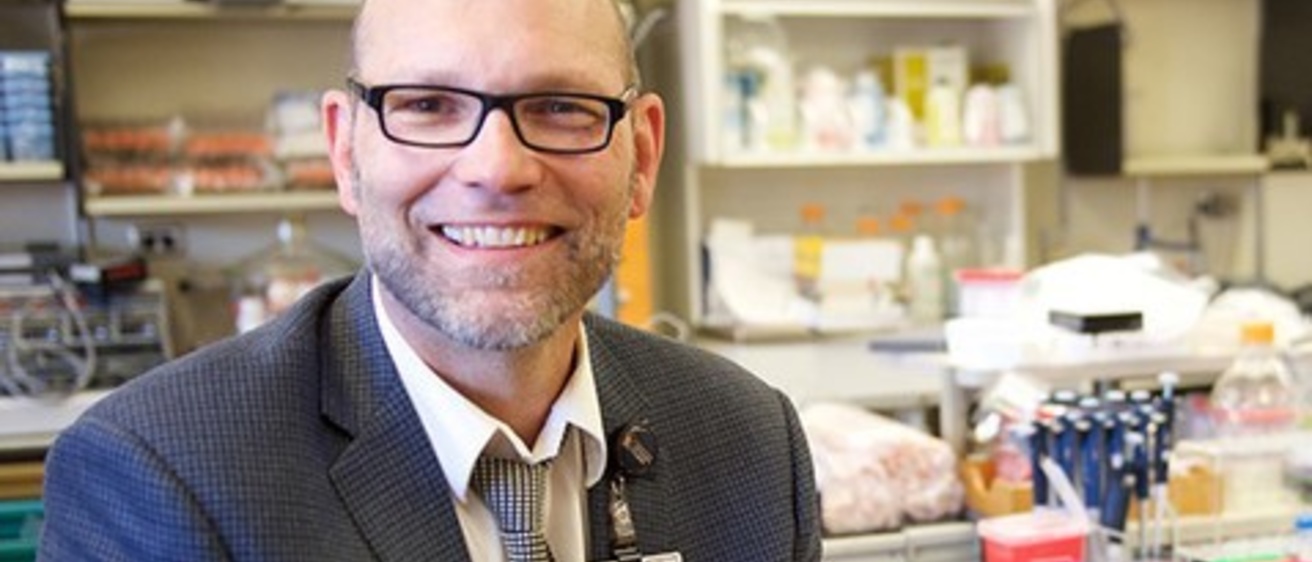The US Food and Drug Administration (FDA) has approved a medical technology created by a University of Iowa faculty member to treat abnormal heart rhythms.
Boston Scientific Corporation received FDA approval for the Farapulse™ Pulsed Field Ablation (PFA) System, a simple, cost-effective alternative to the standard-of-care thermal ablation treatment. University of Iowa startup Farapulse, Inc. (originally Iowa Approach) developed the technology before medical device corporation Boston Scientific acquired the company in June 2021.
Steven Mickelsen, MD, an assistant professor in the Carver College of Medicine, founded Farapulse, Inc. in 2012 to further expand his novel approaches to treating atrial fibrillation (AFib), an irregular heart rhythm that occurs when damaged or diseased tissue in the upper chambers of the heart emit chaotic electrical signals. AFib is the most common heart arrythmia, often leading to blood clots and stroke, and is projected to affect over 12 million Americans by 2030.
“The Farapulse™ PFA system has been used to treat more than 40,000 patients in clinical and commercial settings worldwide,” said Michael Mahoney, chairman and CEO of Boston Scientific, who earned his BBA in finance at the UI. “I am proud that the University of Iowa, my alma mater, is where the work of cardiologist and inventor Dr. Steven Mickelson led to the founding of Farapulse."
Ablation is the accepted medical treatment for AFib, but the procedure is typically complex and lengthy, requiring the electrophysiologist to route intravenous catheters to where the pulmonary vein enters the upper left heart chamber. The catheter applies extreme heat or cold to kill misfiring heart cells, but there is a risk of nerve or muscle cells outside the vein being damaged. The Farapulse™ PFA System uses electrical signals that isolate and ablate specific heart cells in a precise pattern, resulting in a quicker and safer procedure. A study of 17,000 patients treated after the technology received European approval in March 2021 showed that no one developed esophageal injury, pulmonary vein stenosis, or permanent injury to the phrenic nerve, which controls the diaphragm.
Physicians in the cardiac electrophysiology division of UI Hospitals & Clinics will become the first in the state to begin utilizing the technology in procedures later this month.
“Pulse field ablation, particularly Farapulse, offers a safe, more efficient, and effective treatment option for patients with atrial fibrillation in the state of Iowa, while significantly cutting down the procedural times and ensuring the reproducibility of results,” said Paari Dominic, MBBS, MPH, director of electrophysiology at University of Iowa Hospitals & Clinics. “It will significantly increase access to the procedure and reduce wait times.”
As fellow and then a faculty member in the UI’s Abboud Cardiovascular Research Center (ACRC), Mickelsen drew on 15-plus years of experience inside cardiac catheterization labs to conceive and build the prototypes that eventually became the Farapulse™ PFA system.
“There are relatively few basic scientists who identify the causes of the diseases that lead to heart arrhythmias—the University of Iowa and the ACRC has traditionally been one of the institutions that has supported these scientists and physician-scientists,” said Barry London, director of the ACRC and the Division of Cardiovascular Medicine. “There are even fewer electrophysiologists who can see the limitations of our current technologies and successfully invent new, clinically relevant ways to circumvent them. Steven is a unique example, and we could not be prouder of the national and international impact that his inventions will have.”
“Farapulse is the latest example of a high-impact technology to emerge from the University of Iowa,” said UI Chief Innovation Officer Jon Darsee. “The entrepreneurial spirit of our campus supported Mickelsen as he combined insights from research and clinical experience to fill an unmet patient need, and now Boston Scientific is taking his technology to patients worldwide.”
Mickelsen collaborated with each of the UI offices playing a role in economic development and encouraging the translation of research into commercial applications. The UI Research Foundation, a unit of the Office of the Vice President for Research, began working with Mickelsen in 2012, assisting him with his innovation. The John Pappajohn Entrepreneurial Center (Iowa JPEC) within the Tippie College of Business and UI Ventures, a unit the Office of Innovation, also played roles in supporting commercializing Mickelsen’s invention.
"I believe innovation thrives in environments that embrace interdisciplinary collaboration and public-private partnerships,” Mickelsen said. “UIHC's commitment to fostering innovation sets a benchmark for institutions worldwide. It made a tremendous difference for me personally and now for millions of patients with cardiac arrhythmias."
